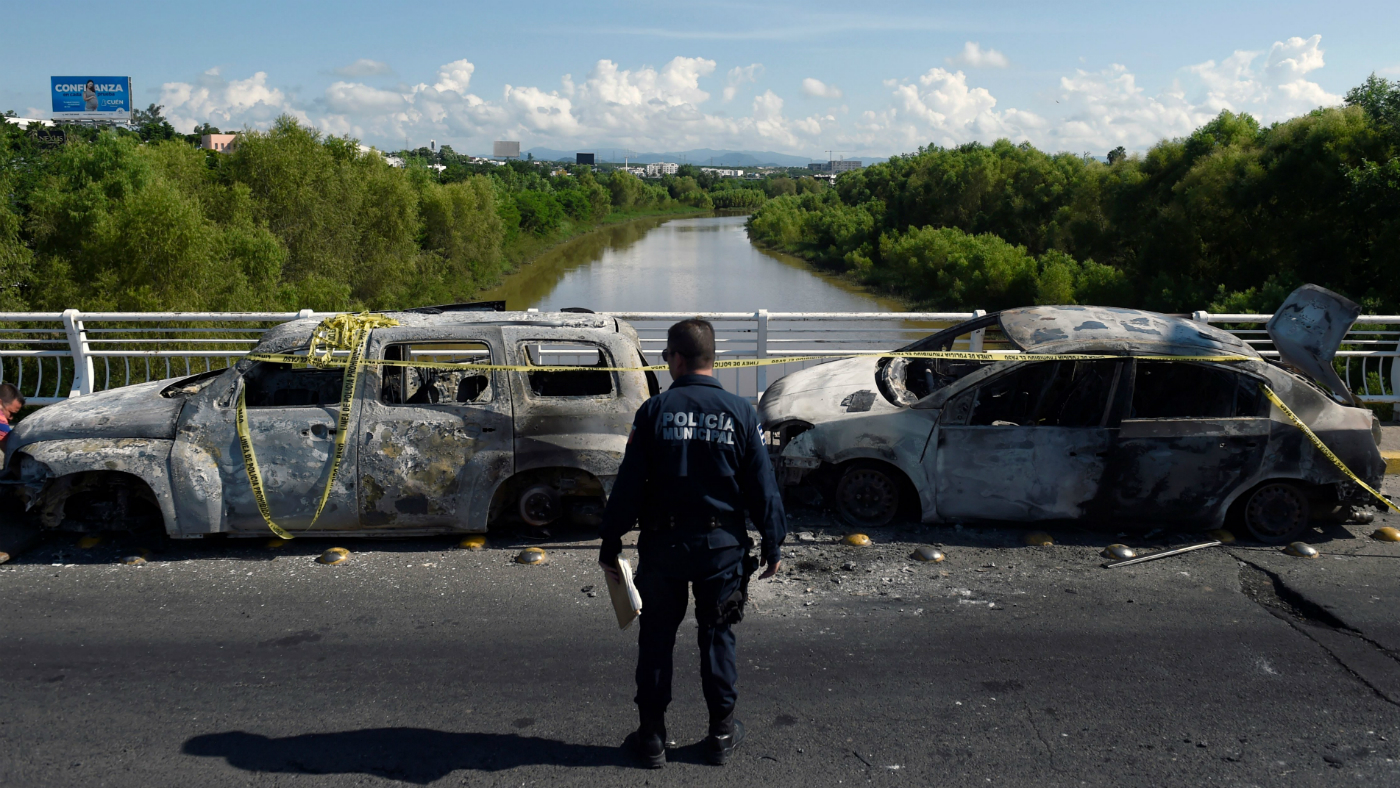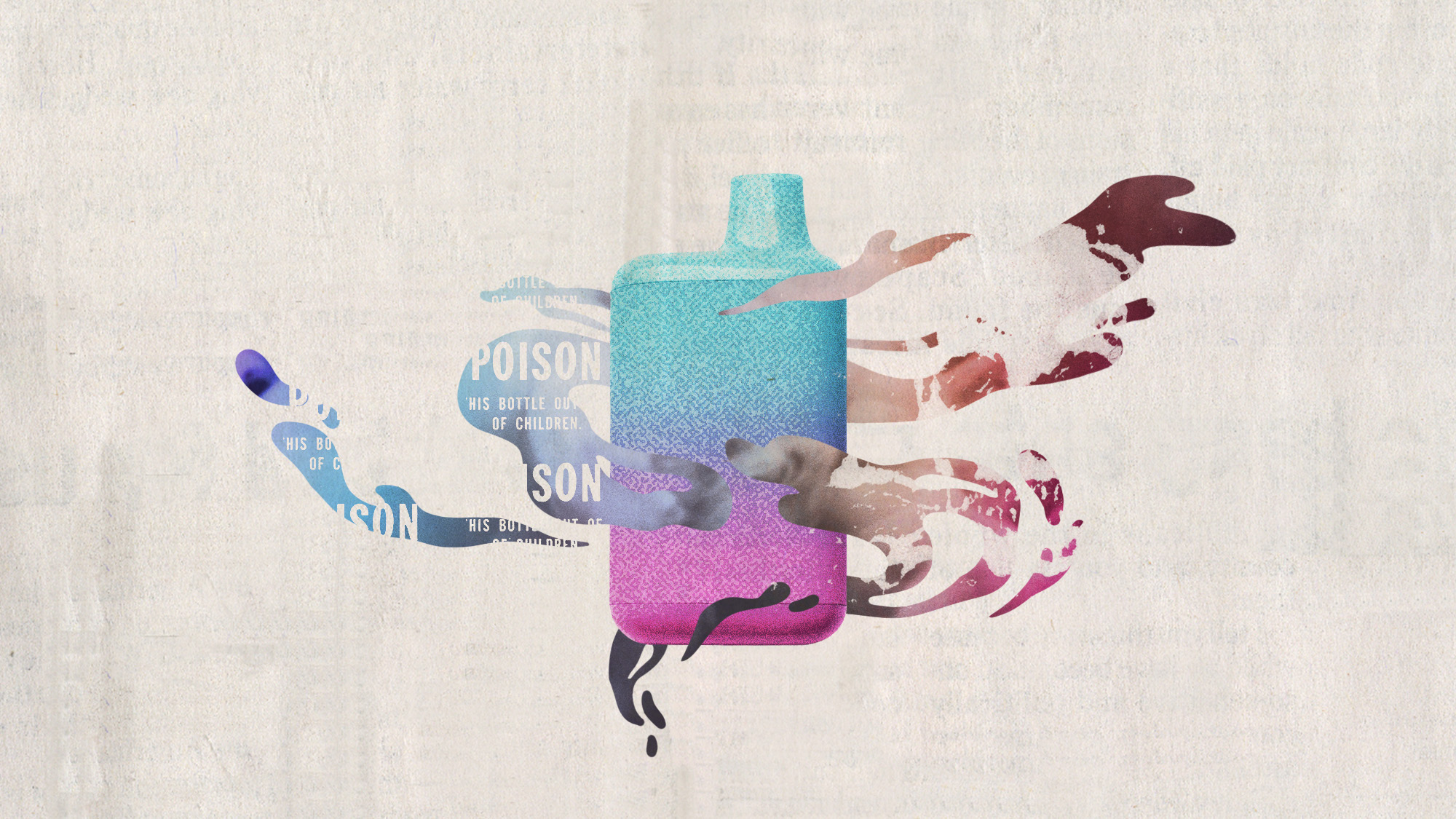Mexico murder rate hits all-time high
Nearly 35,000 people were killed in 2019 despite government pledge to curb cartel violence

A free daily email with the biggest news stories of the day – and the best features from TheWeek.com
You are now subscribed
Your newsletter sign-up was successful
Mexico’s murder rate soared to a record high of 34,582 last year - an average of 95 killings a day, according to newly released official data.
The annual total represents a 2.5% increase from 2018, when 33,743 victims were recorded, according to a report from the Central American country’s Secretariat of Public Security.
Mexico has been “plagued with violence since 2006, when the government deployed the military to wage the so-called war on drugs”, says Al Jazeera. So what has gone wrong - and can anything be done to cut the death toll?
The Week
Escape your echo chamber. Get the facts behind the news, plus analysis from multiple perspectives.

Sign up for The Week's Free Newsletters
From our morning news briefing to a weekly Good News Newsletter, get the best of The Week delivered directly to your inbox.
From our morning news briefing to a weekly Good News Newsletter, get the best of The Week delivered directly to your inbox.
What is the current situation?
Drug cartels have long fuelled a cycle of violence in Mexico that has seen millions of guns flood into the country from the US.
In turn, an estimated 90% of illegal drugs in the US come from Mexico - most notably cocaine, the illegal trade of which is a multibillion dollar industry for rival cartels battling for control of the key trade routes.
In 2006, Mexico’s newly elected president Felipe Calderon launched what has been dubbed the Mexican Drug War, sending 6,500 government soldiers to the state of Michoacan to battle drug traffickers.
A free daily email with the biggest news stories of the day – and the best features from TheWeek.com
This government policy of “decapitation” focused on “eliminating high-value targets” and “deploying military patrols to the streets”, says the Brookings Institution.
“But it failed at its most basic goal: to boost public safety,” the Washington D.C.-based think-tank continues.
As the Los Angeles Times reports, “better equipped military and police spurred the cartels to improve their arsenals, primarily by smuggling even more weapons from the US”.
The results have been catastrophic. According to official figures, nearly 275,000 people have been killed in Mexico since the drug war started, with a further 60,000 currently missing.
Why is the homicide rate still rising?
The rate of year-on-year increases in Mexico’s homicide levels is slowing after steep annual hikes from 2015 to 2018, when the growth rates were 26%, 28.1% and 16.9% respectively.
All the same, the 2019 homicide total is the highest since records began more than 20 years ago.
The figures make for grim reading for the country’s President Andres Manuel Lopez Obrador, who came to power in December 2018 on a platform of reducing violent crime and curbing Mexico’s out-of-control murder rate.
The left-wing leader pledged to “pacify the country with a less confrontational approach to security”, Reuters reports.
But as the killings continue, his government has “faced criticism that it lacks an adequate security strategy to deal with the country’s rampant violence”, reports The New York Times.
That failure has been “underscored by recent cases like the siege of the city of Culiacan by the Sinaloa cartel and the massacre of nine members of a Mormon sect in northern Mexico” last November, the newspaper adds.
Recent comments by Lopez Obrador have sparked further controversy, with the president repeating his oft-made complaint that corruption - not cartel violence - is the nation’s biggest problem.
“We are giving the almost the same weight to (fighting) white-collar crime as we do to drug cartels,” he said. “I maintain that the greatest damage to Mexico has been done by white-collar criminals.”
–––––––––––––––––––––––––––––––For a round-up of the most important stories from around the world - and a concise, refreshing and balanced take on the week’s news agenda - try The Week magazine. Start your trial subscription today –––––––––––––––––––––––––––––––
What is being done?
Mexican officials last week presented politicians with a proposal to overhaul the criminal justice system, including measures that could “facilitate security cooperation” with the US, Reuters reports.
The news agency has obtained a draft of the reforms that suggests the legislation would pave the way for private communications to be used as evidence, and limit legal challenges to avoid delays in extraditions of suspects to the US and other countries.
Attorney General Alejandro Gertz told senators that the reforms would attack entrenched corruption and impunity as well as the roots of criminal activity.
-
 Bonfire of the Murdochs: an ‘utterly gripping’ book
Bonfire of the Murdochs: an ‘utterly gripping’ bookThe Week Recommends Gabriel Sherman examines Rupert Murdoch’s ‘war of succession’ over his media empire
-
 Gwen John: Strange Beauties – a ‘superb’ retrospective
Gwen John: Strange Beauties – a ‘superb’ retrospectiveThe Week Recommends ‘Daunting’ show at the National Museum Cardiff plunges viewers into the Welsh artist’s ‘spiritual, austere existence’
-
 Should the EU and UK join Trump’s board of peace?
Should the EU and UK join Trump’s board of peace?Today's Big Question After rushing to praise the initiative European leaders are now alarmed
-
 Epstein files topple law CEO, roil UK government
Epstein files topple law CEO, roil UK governmentSpeed Read Peter Mandelson, Britain’s former ambassador to the US, is caught up in the scandal
-
 Mexico’s vape ban has led to a cartel-controlled black market
Mexico’s vape ban has led to a cartel-controlled black marketUnder the Radar Cartels have expanded their power over the sale of illicit tobacco
-
 Iran and US prepare to meet after skirmishes
Iran and US prepare to meet after skirmishesSpeed Read The incident comes amid heightened tensions in the Middle East
-
 Israel retrieves final hostage’s body from Gaza
Israel retrieves final hostage’s body from GazaSpeed Read The 24-year-old police officer was killed during the initial Hamas attack
-
 China’s Xi targets top general in growing purge
China’s Xi targets top general in growing purgeSpeed Read Zhang Youxia is being investigated over ‘grave violations’ of the law
-
 Panama and Canada are negotiating over a crucial copper mine
Panama and Canada are negotiating over a crucial copper mineIn the Spotlight Panama is set to make a final decision on the mine this summer
-
 Why Greenland’s natural resources are nearly impossible to mine
Why Greenland’s natural resources are nearly impossible to mineThe Explainer The country’s natural landscape makes the task extremely difficult
-
 Iran cuts internet as protests escalate
Iran cuts internet as protests escalateSpeed Reada Government buildings across the country have been set on fire